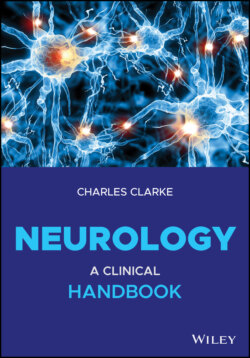Читать книгу Neurology - Charles H. Clarke - Страница 195
Abnormal Illness Behaviour and Somatic Symptom Disorder
ОглавлениеSymptoms that are unexplained or only partially explained by organic disease are common. Deliberate exaggeration and even fabrication were thought to be more frequent than current views suggest, perhaps now erring towards political correctness. The reality is that many have symptoms that are worrying or uncomfortable but do not reflect any serious disease – for example, unexplained fatigue, give‐way weakness and non‐organic sensory loss, or ‘attacks’. The problem is serious: about one‐third of apparent status epilepticus and a fifth of recurrent attacks referred to epilepsy clinics are non‐organic (see also Chapter 22).
One approach is to accept that the majority do have the symptoms of which they complain. This comment excludes those involved in legal claims, where non‐organic features are especially prominent and of a more doubtful nature. The second suggestion is to exclude organic disease with all reasonable certainty. A third is to understand the psychiatric diagnoses, such as depression that might explain such symptoms. Abnormal illness behaviour or somatoform disorder (now known as Somatic Symptom Disorder in DSM‐5) are other potential explanations. However, in many cases of apparent illness behaviour, no formal psychiatric diagnosis is apparent.
Factitious disorder – to gain medical attention – and malingering – for material gain – are also possible, if rare explanations.
